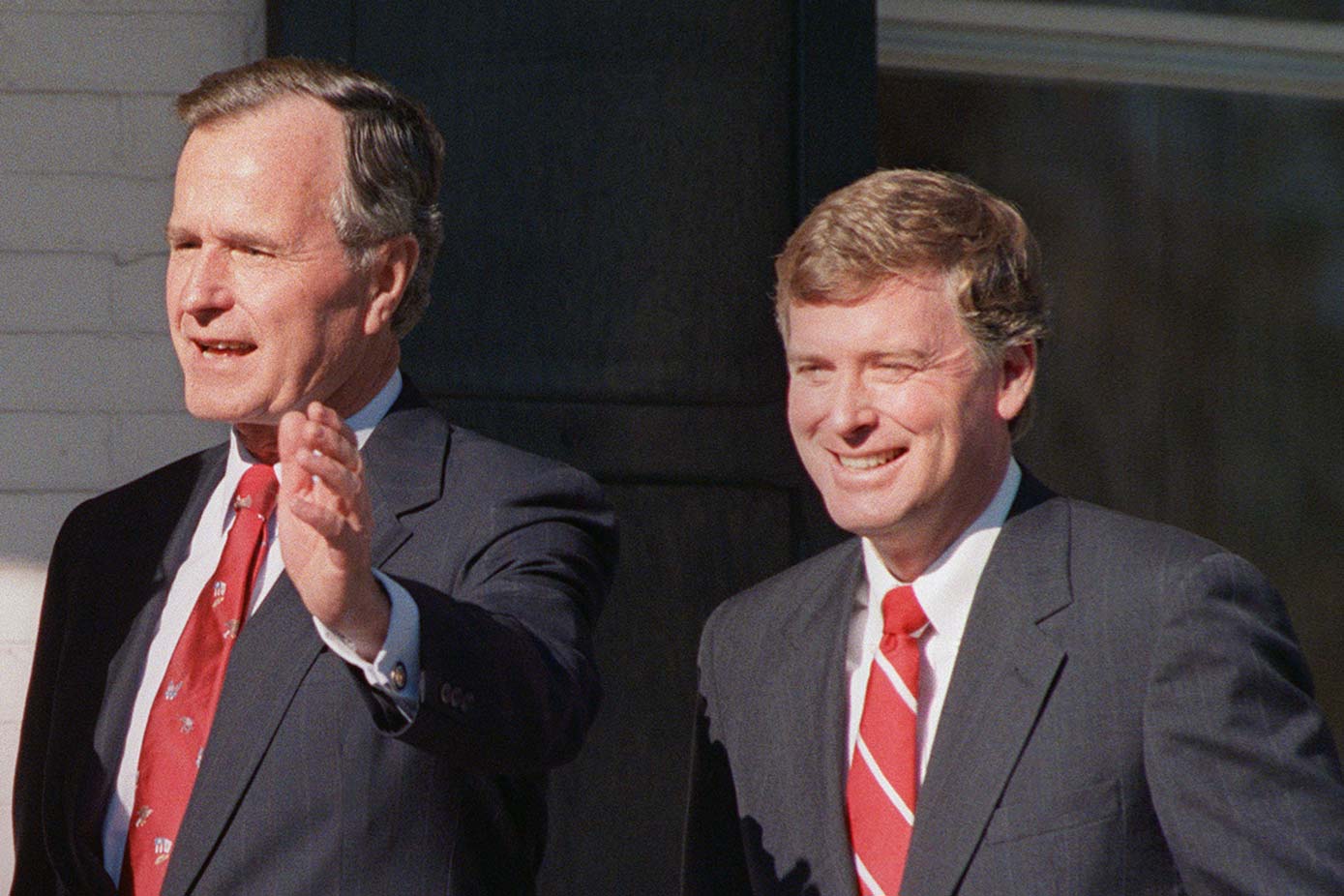

The post-convention media commentary has largely reflected this view. Many Reagan advisers have claimed a deal was never close. George Bush was picked at the very last moment and largely by a combination of chance and some behind-the-scenes maneuvering. It's also possible that the Republicans might have a different candidate today. Had Reagan and Ford managed to win the election, it's very likely that their administration would have been hobbled by an unworkable power-sharing arrangement. Had the talks succeeded and had Ford been selected, the Reagan campaign, crippled by infighting, might well have lost to the Carter-Mondale ticket in the fall. Reagan's selection of Bush in Detroit represented a turnabout within six hours it came only when the negotiations with Ford, having taken on a life of their own, appeared to have reached an impasse. It is hard to imagine an unexpected vice-presidential pick at the last minute, like John Kennedy's selection of Lyndon Johnson in 1960, Richard Nixon's choice of Spiro Agnew in 1968 or even George Bush Sr.'s elevation of Dan Quayle in 1988 - all of which caught the candidates' advisers by surprise.īut it was Ronald Reagan's nomination of Governor Bush's father that bears special telling. Though it was only 20 years ago, the process in 1980 could not have been more different from the one today. Former Secretary of State Warren Christopher has been doing the same for Al Gore. Richard Cheney, the former secretary of defense, has spent months vetting candidates for George W. This summer, as we approach the Republican and Democratic conventions, both major presidential candidates have conducted highly structured searches for their running mates. In addition to the vice-presidential slot, Reagan said, ''Ford wants Kissinger as secretary of state and Greenspan at treasury.'' My instant response was, ''That is the craziest deal I have ever heard of.'' And it was. ''What deal?'' I responded, genuinely surprised that the two parties were already working out details. As I stepped into the hallway, there, coming out of Reagan's rooms and flanked by his Secret Service detail, was a tanned and fit Gerald Ford.Īs I turned to leave, he asked, ''What do you think of the Ford deal?'' It didn't take long for my suspicions to be confirmed. And so, at 5:30 in the evening, before I was to head over to the convention, I walked up the single flight of stairs that separated Reagan's floor from mine.

But as someone who signed on with Reagan because I admired his principled criticism of the foreign policy of the Nixon, Ford and Carter administrations, I couldn't help venturing to the suite to see what was going on. There, word was spreading that Reagan was going to choose Gerald Ford, the former president and his bitter adversary in the 1976 primaries, to be his running mate.Īs Reagan's foreign policy adviser, I didn't have much business getting involved in the selection of a vice president. The silence in the room was in marked contrast to the steadily rising noise at the Joe Louis Arena.
George bush vice president movie#
The entire group was seated on a large U-shaped couch, hushed, as if they were watching some spellbinding movie on TV. So, too, was Reagan, dressed in a casual shirt and tan slacks. Casey, Reagan's campaign manager, Richard Wirthlin, his pollster, and his advisers Peter Hannaford, Michael Deaver and Edwin Meese were all there in the candidate's elegantly appointed rooms on the 69th floor of the Detroit Plaza Hotel.

It's not that there weren't plenty of people around. What I remember most about entering Ronald Reagan's suite early on the third evening of the 1980 Republican convention, the night of his nomination, was the silence.


 0 kommentar(er)
0 kommentar(er)
